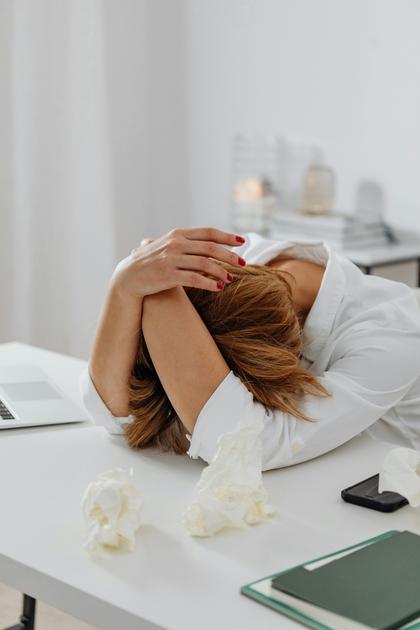Menopause: Unveiling Natural Relief Strategies for Women Today
Are you experiencing the challenges of menopause? Many women struggle with symptoms like fatigue, insomnia, and anxiety. During this phase, it’s essential to find natural relief strategies that work for you. In this blog post, we’ll uncover various approaches to support your journey through menopause with empathy and understanding.
Understanding Menopause: A Natural Transition
Menopause is a natural phase in a woman’s life that often begins in her late 30s to early 50s. It marks the end of menstrual cycles and ovulation, signifying a transition into a new and transformative chapter. While it can bring various challenges, understanding menopause helps demystify the process and frame it as a natural progression rather than a health crisis.
During this period, a woman’s body undergoes significant hormonal shifts, especially in estrogen and progesterone levels. Recognizing that all women experience menopause differently can empower you to seek personalized relief strategies. It’s essential to embrace this transition with a positive mindset, knowing that various natural remedies and lifestyle adjustments can ease symptoms.
Common Symptoms of Menopause Women Experience
Although menopause is a natural transition, it can come with a range of symptoms. Each woman’s experience is unique, but common symptoms include:
- Hot Flashes: Sudden feelings of warmth, often accompanied by sweating, can disrupt daily activities.
- Night Sweats: Hot flashes during sleep can result in interrupted rest, leading to fatigue.
- Insomnia: Difficulty falling asleep or staying asleep can have significant effects on overall health.
- Mood Swings: Hormonal changes can lead to fluctuations in emotions, causing anxiety or irritability.
- Weight Changes: Many women find it challenging to maintain their current weight due to metabolic changes.
- Dryness: Vaginal and skin dryness can lead to discomfort and affect intimacy.
- Memory Issues: Short-term memory lapses or “brain fog” can occur due to hormonal changes.
Identifying which symptoms resonate with your experience can guide you in developing effective strategies for relief.
The Impact of Hormonal Changes on Your Well-being
The hormonal fluctuations that characterize menopause can greatly impact your physical, emotional, and mental well-being. The decline in estrogen can affect mood, leading to feelings of sadness or anxiety. Women may also experience changes in libido, energy levels, and even cognitive function.
Knowing the science behind these shifts diminishes your fears—your experiences are shared by many others. Understanding that emotional highs and lows are temporary, linked to hormone levels, allows for a more compassionate approach towards yourself. You are not alone in this, and these feelings can change.
Exploring Dietary Adjustments for Relief
Diet can play a crucial role in alleviating menopausal symptoms. Implementing certain foods into your daily routine can help stabilize hormonal balances and improve overall wellness. Here are some dietary adjustments to consider:
- Phytoestrogens: Foods like soy, flaxseeds, and legumes contain natural compounds that mimic estrogen in the body, potentially easing hot flashes.
- Leafy Greens: Dark leafy greens are rich in calcium and magnesium, which can help with bone density as you age.
- Whole Grains: Foods like brown rice and oats can aid in digestion and help maintain stable energy levels.
- Fruits and Vegetables: Berries, citrus, and cruciferous vegetables are packed with vitamins and antioxidants that support emotional and physical health.
- Healthy Fats: Incorporating avocados, nuts, and olive oil can support hormone production and brain health.
Each meal can become a small act of self-care, nurturing your body during this transformative phase.
Herbal Remedies: Nature’s Gift for Menopausal Symptoms
Herbal remedies offer a promising path for natural relief from menopausal symptoms. Many women find solace in traditional herbs, which have been used for centuries. Here are a few popular options:
- Black Cohosh: Often used to ease hot flashes and night sweats, black cohosh can be taken in capsule form or as a tea.
- Red Clover: Rich in isoflavones, red clover may help balance hormones and alleviate some menopausal symptoms.
- Chaste Tree Berry: This herb may help regulate hormone levels and is often recommended for mood swings.
- Ginseng: Known for its revitalizing effects, ginseng may help reduce fatigue and improve mood.
- Lavender: Widely used for its calming properties, lavender can help alleviate anxiety and improve sleep quality.
Always consult with a healthcare professional before starting any herbal supplements to ensure they fit your unique health needs.
Mindfulness and Stress Management Techniques
The emotional rollercoaster of menopause can cause stress, making mindfulness practices essential. Techniques such as yoga, meditation, or deep-breathing exercises can significantly reduce stress levels. Here are some effective practices:
- Guided Meditation: Find a quiet space and listen to guided meditations focused on relaxation and self-acceptance, helping you navigate emotional ups and downs.
- Breathwork: Simple breathing exercises can provide immediate relief during moments of anxiety or overwhelming feelings.
- Yoga: Gentle yoga can improve flexibility, help control weight, and foster a serene mind.
- Journaling: Writing down thoughts and feelings can clarify emotions and provide a therapeutic outlet.
Incorporating these practices into your daily routine gives you tools to manage the challenges of menopause with grace and patience.
The Importance of Sleep and Rest During Menopause
Quality sleep is vital during menopause, yet disrupted sleep is a common complaint. As hormonal fluctuations interfere with sleep patterns, prioritizing rest becomes even more critical. Here are tips for improving your sleep hygiene:
- Establish a Sleep Routine: Going to bed and waking up at the same time each day can help regulate your body’s internal clock.
- Create a Relaxing Environment: Make your bedroom a sanctuary—dark, cool, and free from distractions to promote restful sleep.
- Avoid Stimulants: Reduce caffeine and alcohol intake, especially in the hours leading up to bedtime.
- Mindful Evening Activities: Engage in calming activities before bed, like reading or taking a warm bath, to signal your body that it’s time to wind down.
Understanding how to optimize your sleep can be a game-changer during this transitional phase.
Staying Active: Exercises for Physical and Mental Health
Regular exercise is another valuable component in easing menopausal symptoms. Physical activity releases endorphins, which can improve your mood and energy levels. Here are some exercises to consider:
- Aerobic Exercises: Activities like walking, swimming, or cycling can boost cardiovascular health and help manage weight.
- Strength Training: Building muscle can help combat the decline in metabolism and strengthen bones.
- Flexibility Exercises: Stretching, yoga, and pilates can enhance flexibility and balance, reducing the risk of injury.
- Mind-Body Exercises: Engaging in tai chi or qigong promotes both physical movement and mindfulness, supporting mental clarity.
Finding joy in movement can transform your mindset and foster connection with your body.
Building a Supportive Community of Women
Connection with others facing similar experiences can be empowering. Building a supportive community allows women to share their stories, tips, and encouragement. Here are some ways to foster community:
- Join a Support Group: Look for local or online groups that focus on menopausal health. Sharing experiences can alleviate feelings of isolation.
- Engage with Friends: Talk openly with friends or family who are also navigating menopause. Sometimes, just knowing you’re not alone can be comforting.
- Social Activities: Participate in group activities or classes related to health and wellness, creating bonds through shared interests.
Being part of a community reinforces that each woman’s journey is valid and shared.
Empowerment Through Education and Resources
Knowledge is power when it comes to managing menopausal symptoms. Familiarizing yourself with resources can lead to informed choices about your health. Here are some educational resources:
- Books: Seek out literature specifically addressing menopause for comprehensive insights and practical advice.
- Online Resources: Websites and online forums dedicated to menopausal health can provide support and share experiences from diverse women.
- Workshops and Seminars: Attend local or virtual gatherings focused on health, wellness, and menopause for real-time knowledge and tools.
Continually educating yourself creates a strong foundation for navigating this transition with confidence.













